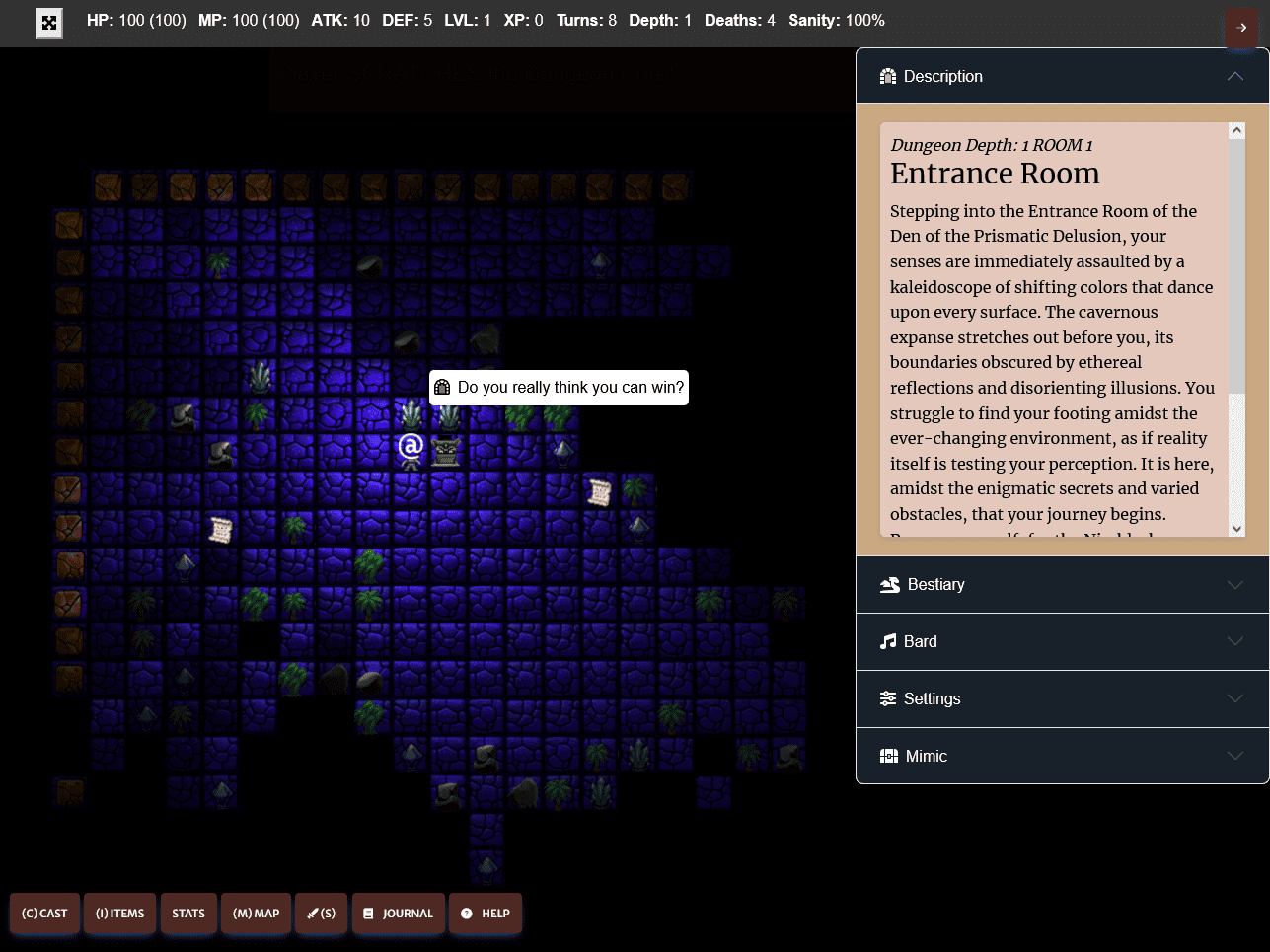If there’s one thing that gaming has taught us, it’s that everything old can be new again. Just as platformers, shoot-’em-ups, and beat-’em-ups have had their renaissances, the traditional turn-based roguelike, a genre steeped in gaming history, is currently enjoying a resurgence. This retro form of gameplay, which combines dungeon crawling with procedural generation and permadeath, is increasingly capturing the attention of modern players. But why are these old-school games making such a substantial comeback?
The Nostalgic Appeal
First, let’s not discount the power of nostalgia. The roguelike genre has roots stretching back to the late 70s and early 80s, with games like ‘Rogue’ and ‘NetHack’. For many gamers, these titles were an introduction to an imaginative, endless world where no two playthroughs were the same. The allure of these games wasn’t their graphics or sound design, but the depth of gameplay and almost infinite replayability. Revisiting the turn-based, tile-based style of these classics taps into the fond memories of gamers, rekindling a passion that newer, flashier titles might not ignite.
Depth and Complexity
Turn-based roguelikes offer a gaming experience rich in strategic depth and complexity. Every move can be a matter of life and death, with the tension ramping up as your character delves deeper into the dungeon. This cerebral approach to gameplay contrasts sharply with the more twitch-based, reactionary play style of many modern games, providing a refreshing change of pace. With the rise of casual gaming and mobile platforms, there is a growing audience that appreciates the opportunity to engage with a game at their own pace, deliberating over each move.
Endless Replayability
Procedural generation and permadeath are two pillars of the roguelike genre, and they’re a big part of why these games offer such great replay value. With each run being different from the last, players are continually presented with new challenges and opportunities. This randomness creates a sense of anticipation and discovery, a quality that many gamers find irresistible. Even if you meet a tragic end, there’s always the temptation to try just one more time, hoping to explore new areas, encounter different monsters, or discover more powerful items.
Indie Developer Influence
Another factor contributing to the revival of traditional roguelikes is the influence of independent game developers. Indies have always been at the forefront of reviving older genres, and roguelikes are no exception. They are attracted by the genre’s relative ease of development and the opportunity to put their unique spin on classic mechanics. The success of indie roguelikes like ‘Dungeon Crawl Stone Soup’ and ‘Tales of Maj’Eyal’ has helped to fuel this resurgence.
The Future of Roguelikes
The resurgence of traditional turn-based roguelikes shows no signs of slowing down. Developers continue to innovate, adding new layers of complexity, while maintaining the genre’s core elements of procedural generation, permadeath, and tile-based gameplay. Gamers are responding to these efforts, drawn by the genre’s depth, replayability, and the nostalgia factor. It’s clear that the appeal of these games transcends their pixelated graphics and seemingly simplistic gameplay. With a rich history behind it and a vibrant present, the future of the roguelike genre looks as intriguing as the dungeons it so lovingly generates.
Try my AI Tabletop RPG generators...and an extensive library of content!
Some Great Modern Traditional Roguelikes
Here’s a quick four top-notch modern traditional turn-based roguelikes.
Dungeon Crawl Stone Soup (DCSS)
DCSS is an open-source roguelike game that stands out due to its immense depth and variety. Players can choose from over two dozen races and backgrounds, each with their unique strengths and weaknesses. The game features a complex magic system, hundreds of different monsters, and thousands of items, making every playthrough a fresh experience. It encourages strategic and tactical gameplay through a variety of environments. The game is continually updated by a dedicated community, meaning that the Dungeon Crawl experience just keeps getting richer.
Caves of Qud
Caves of Qud is an open-world roguelike game that has gained a cult following for its immersive world-building. It combines traditional roguelike gameplay with a richly detailed post-apocalyptic setting. Players explore an ancient world teeming with sentient plants, mutant animals, and relics of forgotten civilizations. The game also boasts a deep character creation system, allowing players to craft their unique mutant character. It’s a roguelike for those who love exploration and rich lore.
Ancient Domains of Mystery (ADOM)
ADOM is one of the ‘big four’ classic roguelikes, known for its mix of hack-and-slash gameplay and role-playing depth. It provides an extensive overworld with multiple dungeons, various towns, and a lot of non-player characters, giving it a unique flavor compared to more dungeon-focused roguelikes. In ADOM, the choices you make matter, affecting the game world and the story’s outcome. It combines the procedural generation of roguelikes with persistent world elements to create a deeply engaging gaming experience.
NetHack 4
NetHack 4 is a modernized version of one of the oldest and most influential roguelikes, NetHack. It maintains the intricate, complex gameplay of the original, featuring hundreds of monster types and items, and an enormous, multi-layered dungeon. At the same time, it updates the user interface and graphics for a more contemporary gaming experience. Players can interact with their environment in a staggering number of ways, creating emergent gameplay that continually surprises and challenges.
⚔️ Fantasy RPG Random Tables Books
Make life as a Gamemaster easier…
If you play Dungeons & Dragons, Pathfinder, or other fantasy RPGs, this
RPG random tables series
is packed with encounters, NPCs, treasure, and more. Available in eBook or print—either way, you’ll have a wealth of adventure ideas at your fingertips.
Roguelike games have always been about pushing boundaries and creating unique experiences. Whether you’re a newcomer to the genre or a seasoned veteran, these games offer a wealth of exploration, strategy, and excitement. Each one brings something unique to the table, and they’re all worth checking out.
Tower of Gates
No, it’s not a modern classic yet, but I’m working hard…










